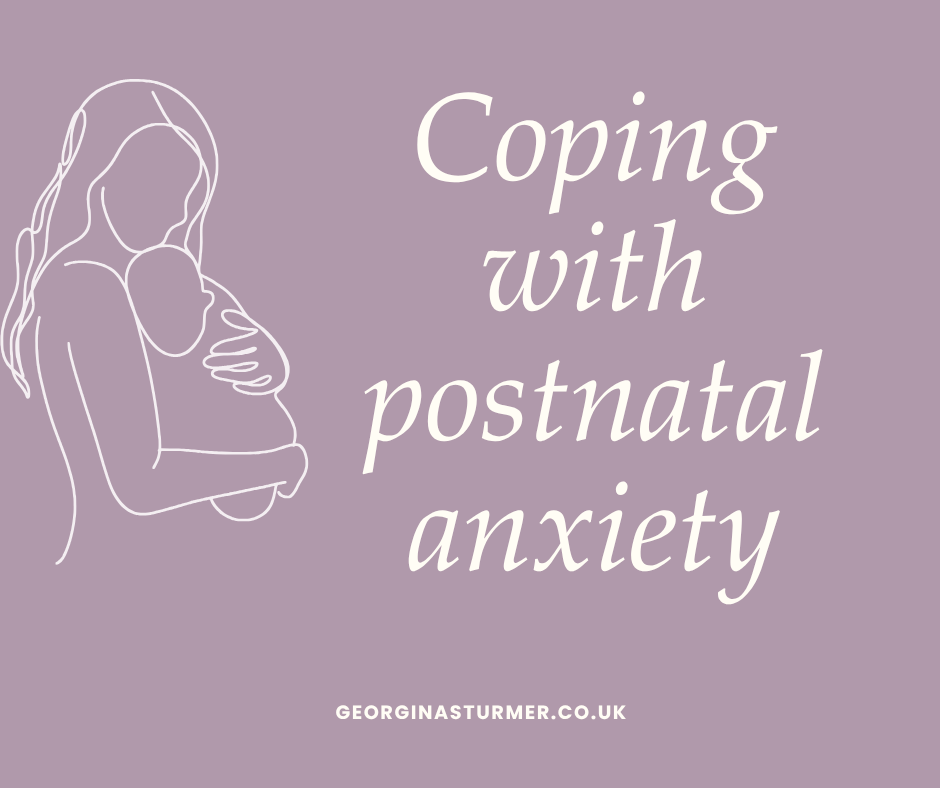Feeling lonely after becoming a mum? You’re not alone
- Georgina Sturmer

- Jul 23, 2025
- 3 min read
Loneliness can be one of the quietest struggles of motherhood. You're not physically alone. In fact, you're rarely by yourself. But you might still feel disconnected, unseen, or emotionally isolated. Recently, I spoke to Metro all about the hidden emotional impact of maternal loneliness. Check out the full article here. According to recent research from the BACP, 62% of new parents say that loneliness has negatively affected their mental health. It’s something that so many new mums experience – yet it’s rarely talked about.
One of the main reasons why we don't talk about it? Loneliness doesn’t always look like loneliness.
It might look like anxiety, sadness, perfectionism, or a feeling of not quite being yourself anymore. You might miss your old identity or routines, but feel unable to say that out loud. You might be surrounded by people, and still feel as though no one truly gets it.
And then there’s the pressure. The pressure to be grateful, to keep going, to ‘do it all’, to be enjoying every special moment. Especially if it's been a long road to have a child, or if you have people in your life who have struggled with fertility or loss. This can make it even harder to express how you’re feeling.
Why is maternal loneliness so common?
Becoming a mum is a huge life transition. In counselling, we often talk about matrescence — the physical, emotional, and social transformation that comes with motherhood. If you want to learn more about this, I would recommend Lucy Jones' book 'Matrescence'. You’re adjusting to a new identity, a new body, new relationships, a lack of sleep, and a new way of being in the world. You might fear other people's judgements - whether they are real or imagined - about how you are coping with the myriad of new tasks and responsibilities that come with motherhood. Hollie McNish encapsulates some of this beautifully in much of her work, 'Nobody Told Me', and Brene Brown refers to this concept as 'mother-shame'.
And at the same time, many of us are doing this without the ‘village’ that we really need. This real life village has, in many instances, been replaced by a virtual one. And while virtual communities can offer a great source of support, social media can make it harder, too. The endless scroll of images and videos and adverts might offer the illusion of connection, but it can also fuel perfectionism and self-criticism, making it harder to speak up about how we really feel.
And if reaching out feels hard?
That’s completely understandable. Many of us feel that we don’t want to be a burden, or that we should be coping on our own, or being a 'perfect mum'. Here's a link to a piece on the BACP website that includes my comments, all about the myth of the 'perfect mum'.
And sometimes, there are deeper fears or beliefs that hold us back from seeking help: ones that predate pregnancy, birth and motherhood. We might be worried about asking for help, relying on others, or showing vulnerability.
In counselling, we can explore these feelings and beliefs, so that you can begin to access the connection and support that you deserve.
I'm a BACP-registered Counsellor, and I support clients through anxiety, loss, relationship challenges and life transitions - including the emotional impact of motherhood.
If maternal loneliness has affected you, and you're ready to take the next step, I offer a free, no-pressure introductory call.





Comments